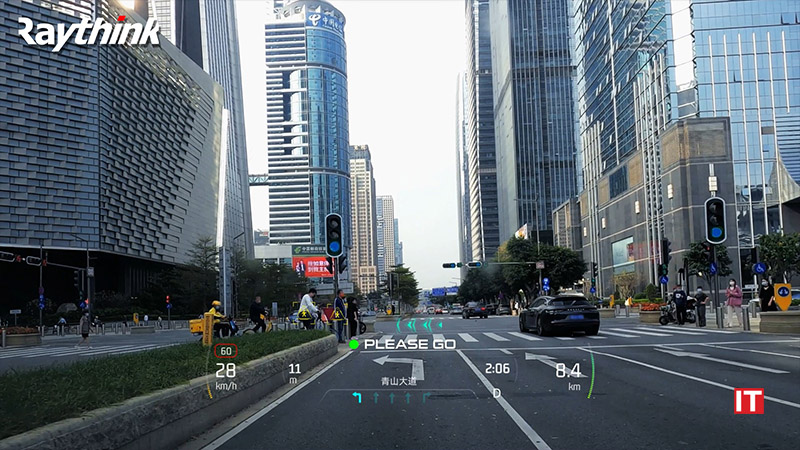Raythink, a world-leading ARHUD solution provider for the automotive and transportation industry, announced that it has raised around $15 million in a Series A+ funding round led by Chengwei Capital, with China Unicom’s subsidiary, Unicom Innovation Venture Capital, as co-investor.
“Chengwei Capital and Raythink have partnered for a long time, and we are honored to work together as they further develop,” said Pei Kang, Managing Partner of Chengwei Capital. “Optical technologies and AR display are Chengwei Capital’s long-term focus. Raythink’s extensive experience in the underlying hardware, software, and algorithms, together with its ability of developing core components independently, has differentiated it from other players in the market and reaffirmed our confidence in the company. Raythink is celebrating its third anniversary this year. During the past three years, it has achieved significant milestones and grown into the near-unicorn status from a mere start-up. We believe Raythink will continue to achieve in the long term, facilitating acceleration in the growth of the whole of China’s AR display sector.”
Founded in 2019, Raythink is a provider of solutions integrating intelligent transportation, assisted driving and AR display. The company’s core technologies include optics, picture generation units (PGUs), AR Generator® SDK, algorithms and hardware. Raythink has successfully developed unique large field of view AR HUD products with automotive-grade mass production capacity.
Also Read: Avast at Collision 2022: The Fight for Digital Freedom in Times of Cyberwar
The company’s headquarters and main production facilities are located in Shenzhen, with R&D centers worldwide, including the Changsha Embedded Software Application Service Team, the Taipei Optical Innovation R&D Center, and the Bangalore Algorithm and Software Development Center, all of which are focused on the development of next-generation automotive human-machine interfaces (HMIs). Raythink holds more than 100 invention and innovation patents covering AR navigation, Forward Collision Warning (FCW), Pedestrian Collision Warning (PCW), Lane Departure Warning (LDW) and other driver safety systems made possible by naked eye AR technology.
Raythink Receives IATF16949 Quality Management System Certification, a Milestone for 2.0 AR HUD
The company recently announced that it has obtained IATF16949 quality management system certification, demonstrating that its research and development, production and management systems fully meet the management standards required by the automotive industry whereby the management of all processes adopts an approach that is, at all times, systematic, scientific and standardized. The certification lays the foundation for further expanding the deployment of Raythink’s mass-produced AR HUDs in more mainstream vehicle models, and will further accelerate the application of next-generation human-computer interaction solutions in an increasingly wide range of smart connected cars and smart cockpit scenarios.
New AR HUD Solution Has Won Recognition from and Led to Partnerships with Multiple Customers
Raythink provides three types of AR HUD products covering 1-3 lanes for high-, medium- and low-end vehicles: the AR HUD PRO, the AR HUD, and the Mini AR HUD solution for entry-level vehicles with limited space. These offerings are also very advantageous in terms of size compared to their industry counterparts.
In the application scenario for passenger vehicles, AR HUDs are gradually becoming the core of intelligent cockpit interaction that integrates guidance, safety and entertainment. Raythink’s products and technologies are recognized by the industry and are actively being integrated into the development of intelligent cockpits. Raythink has signed strategic partnership agreements and is already working with the world’s leading Tier 1 component providers to develop several proof of concept (POC) projects. Leading to way to mass production of AR HUD products, Raythink has also won the bid from many name brand carmakers for the POC of their center consoles as well as for the development of their fixed-point projects.

































